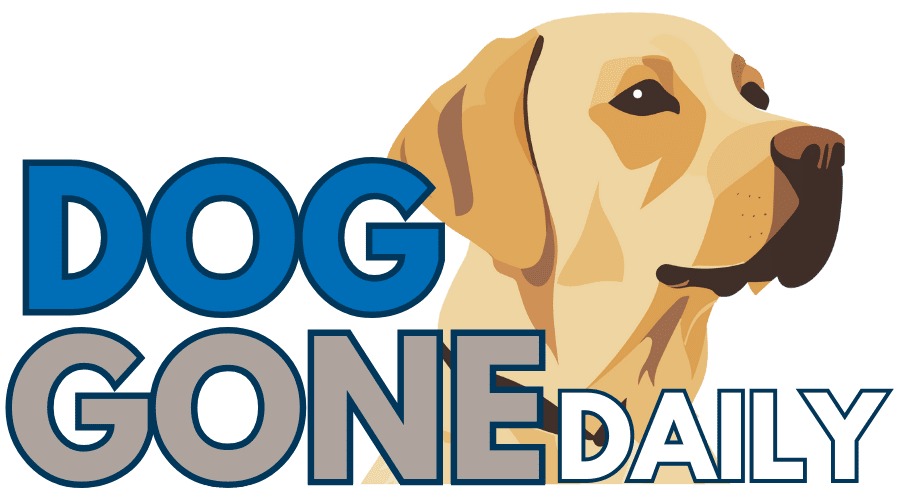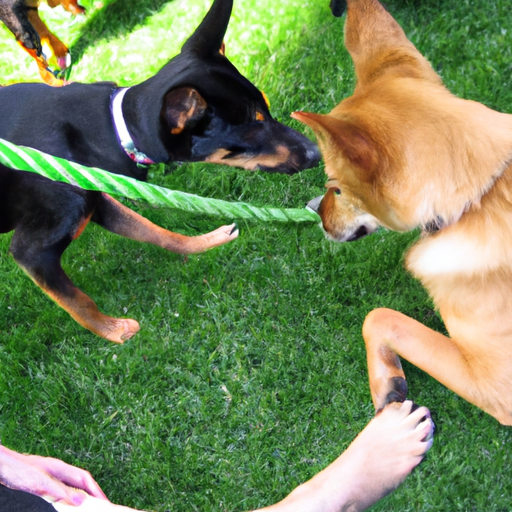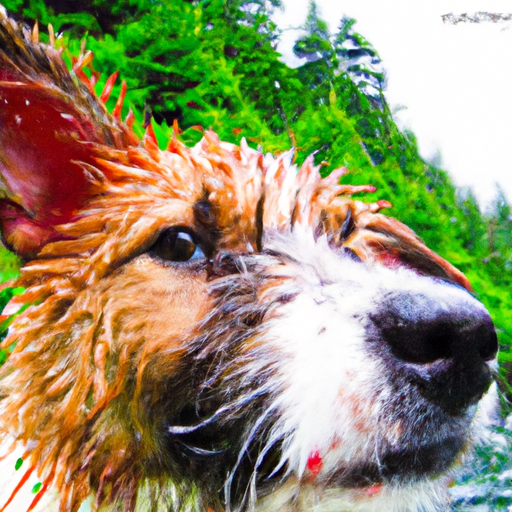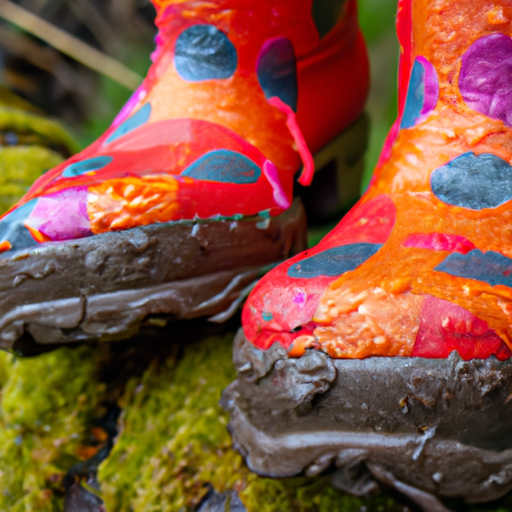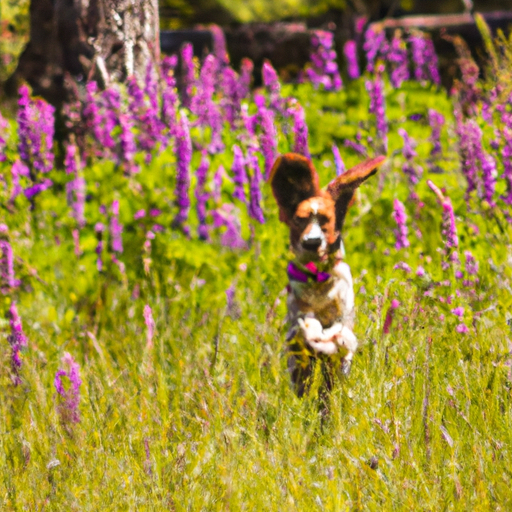Imagine a world where puppies frolic freely, tails wagging and tongues panting with glee. It's a joyous sight to behold, and now, it's a reality with Fun Puppy Playdates – the ultimate hangout for our furry friends. These playdates are all about providing a safe, social, and fun environment for puppies to interact and develop essential social skills. Whether your pup is shy, energetic, or a little mischievous, our playdates cater to every personality type. With experienced staff, engaging activities, and an abundance of toys, Fun Puppy Playdates is where the magic happens for our four-legged companions. Get ready for tail-wagging fun!
Benefits of Puppy Playdates
Socialization
Puppy playdates offer a fantastic opportunity for your furry friend to socialize with other puppies. Socialization is crucial for puppies as it helps them learn how to interact with other dogs and humans in a safe and positive manner. By exposing your puppy to different dogs, they can develop better communication skills and become more confident in various social settings. Additionally, regular playdates can help prevent behavioral problems that may arise from fear or isolation.
Exercise
Puppies are bundles of energy, and playdates provide the perfect outlet for them to burn off that excess energy. Running, jumping, and chasing their new canine friends can offer a stimulating and fun exercise session for your puppy. It's important to remember that puppies have specific exercise needs depending on their breed, so playdates can be an excellent way to tailor physical activity to suit their requirements.
Behavioral Development
Puppies learn a lot through observation and interaction with their peers. Playdates expose them to different behaviors, play styles, and body language, which helps refine their own social and behavioral skills. Through positive play experiences, puppies can learn appropriate play etiquette, develop impulse control, and practice bite inhibition. These social skills acquired during playdates are crucial for a well-adjusted and balanced adult dog.
Mental Stimulation
Playdates not only provide physical exercise but also engage your puppy's mind. Puppies are naturally curious and love exploring new environments and interacting with other dogs. The mental stimulation gained from these playdates helps prevent boredom and can contribute to better overall mental health. By exposing your puppy to different toys, environments, and experiences, you are fostering their cognitive development and ensuring they have a well-rounded outlook on the world.
Choosing the Right Puppy Playdate
Matching Ages and Sizes
When selecting a playdate for your puppy, it is important to consider their age and size. Puppies grow at different rates, so it is important to find a playmate who is similar in size and age. This ensures a more balanced and safe play experience for both puppies, as they will have similar energy levels and physical capabilities.
Considering Energy Levels
Energy levels can vary greatly between puppies. Some may be more high-energy and playful, while others may be more relaxed and laid-back. It is essential to find puppies whose energy levels align with your own puppy's temperament. This helps create a harmonious play environment and reduces the likelihood of one puppy becoming overwhelmed or intimidated by the other.
Evaluating Temperaments
A crucial aspect of choosing the right playdate is evaluating the temperaments of the puppies involved. Look for puppies who display friendly, outgoing, and sociable behavior. It is helpful to arrange meet-and-greet sessions beforehand to observe how the puppies interact and ensure their temperaments are compatible. This ensures a safe and enjoyable playdate for all involved.
Assessing Play Styles
Every puppy has a unique play style, and it is important to find puppies whose play styles are compatible. Some puppies may prefer rough and rowdy play, while others may enjoy more gentle and interactive play. Observing the play styles and preferences of each puppy can help ensure a positive and enjoyable playdate where both puppies can engage and have fun.
Preparing for a Puppy Playdate
Ensuring a Safe Environment
Before hosting a puppy playdate, it is crucial to create a safe environment for the puppies to play in. Remove any potential hazards such as toxic plants, sharp objects, or loose wires that could pose a danger to the pups. Secure any gates or fences to prevent escapes and create a designated play area that is free from any potential dangers.
Gathering Necessary Supplies
Having the right supplies on hand can make for a more comfortable and enjoyable playdate. Make sure to have clean water bowls available for both puppies to stay hydrated during play. Toys that are safe and suitable for chewing can also help keep the puppies engaged. It's a good idea to have waste bags on hand for quick and easy clean-up.
Setting Up Boundaries
Establishing boundaries is essential for a successful playdate. Set clear boundaries within the play area and ensure all owners are on the same page regarding acceptable behavior. This can include rules such as no biting, resource guarding, or excessive rough play. Consistency in enforcing boundaries helps create a safe and respectful play environment for all puppies involved.
Communication with Other Owners
Communication with other owners is vital to ensure a positive and enjoyable playdate experience. Discuss any specific concerns or preferences you have regarding your puppy's play style, behavior, or health. Share important information such as allergies or sensitivities to promote a safe and inclusive playdate. Open and respectful communication is key to a successful playdate for all.
Activities during Puppy Playdates
Free Play
Allowing puppies to engage in free play is an essential part of a puppy playdate. This unstructured playtime allows puppies to interact and explore at their own pace. However, it is important to monitor the play and ensure it remains positive and safe. Free play provides an opportunity for puppies to practice their social skills, chase, wrestle, and simply enjoy each other's company.
Structured Games
Incorporating structured games into playdates can add an element of excitement and mental stimulation for the puppies. Games like fetch, hide-and-seek, or tug-of-war can be great options to engage the puppies' natural instincts and provide a fun challenge. Structured games also help reinforce obedience commands and promote positive reinforcement training.
Training Sessions
Puppy playdates can be an excellent opportunity to continue training and reinforce basic commands. Dedicate a portion of the playdate to practicing basic obedience commands such as sit, stay, and recall. This not only provides mental stimulation but also reinforces good behavior and strengthens the bond between you and your puppy.
Obstacle Courses
Setting up a simple obstacle course in the play area can add an extra layer of fun to the playdate. Use items such as tunnels, hurdles, and cones to create a mini agility course for the puppies to navigate. This not only provides physical exercise but also encourages problem-solving skills and coordination. Ensure all obstacles are safe and suitable for the puppies' size and age.
Managing Puppy Playdate Interactions
Supervision
Constant supervision is crucial during puppy playdates to ensure the safety and well-being of all puppies involved. Keep a close eye on their interactions, body language, and play intensity to intervene when necessary. By actively supervising, you can prevent any potential conflicts, address any issues promptly, and promote positive play interactions.
Intervening in Rough Play
While play fighting is a natural behavior for puppies, it is important to intervene if rough play becomes excessive or one-sided. Look for signs of discomfort, fear, or distress in any of the puppies involved. If you observe any such signs, calmly separate the puppies and redirect their attention to a different activity. This helps prevent any potential injuries and maintains a positive play environment.
Preventing Resource Guarding
Resource guarding can sometimes occur during playdates when puppies become possessive of toys or treats. To prevent this behavior, ensure there are plenty of toys and treats available for all puppies. Monitor the play to identify any signs of resource guarding, such as growling or snapping. If resource guarding does occur, calmly separate the puppies and provide a distraction or alternative activity.
Encouraging Positive Interaction
As the playdate host, it is important to encourage positive interactions between the puppies. Reward and praise good behavior, such as gentle play, sharing toys, or appropriate greetings. Redirect any negative behaviors in a calm and gentle manner. By reinforcing positive interactions, you can promote good social skills and enhance the overall play experience for all puppies involved.
Dealing with Common Challenges
Separation Anxiety
Some puppies may experience separation anxiety when meeting new dogs or being away from their owners. To ease separation anxiety, start by introducing the puppies in a neutral location before the playdate. Gradually increase the duration of separation during playdates, providing reassurance and positive reinforcement throughout. Patience and consistency are key in helping puppies overcome separation anxiety.
Dominance Issues
Dominance issues can occasionally arise during puppy playdates, especially among puppies of the same sex. If you observe dominant behaviors, such as mounting or aggressive posturing, it is important to intervene and redirect the puppies' attention to a different activity. Avoid using punishment or forceful methods, as these may escalate the issue. Seek professional guidance if dominance issues persist.
Fearful or Shy Behavior
Some puppies may display fearful or shy behavior during playdates. It is important to provide a safe and reassuring environment for these puppies. Allow them to observe the other puppies from a distance and gradually introduce them to play in a controlled and gentle manner. Avoid forcing interactions and instead focus on building their confidence at their own pace.
Overexcitement or Hyperactivity
Puppies naturally have a lot of energy, and overexcitement or hyperactivity can sometimes disrupt playdates. If a puppy becomes overly excited, interrupt the play and redirect their attention to a calmer activity such as a training session or a puzzle toy. Reinforcing calm behavior and providing intermittent breaks during playdates can help manage overexcitement and hyperactivity.
Safety Tips for Puppy Playdates
Vaccination and Health Requirements
Before arranging a playdate, ensure that all participating puppies are up-to-date on their vaccinations and have received necessary preventive measures against common diseases. This helps prevent the spread of illnesses and ensures a safe play environment for all puppies involved. Consult with your veterinarian to ensure your puppy's vaccinations are current.
Parasite Prevention
Parasites can be easily transmitted between puppies during playdates. Make sure your puppy is protected against fleas, ticks, and worms by following a regular parasite prevention routine. Check with the other puppy owners to ensure their puppies are also parasite-free. Regular grooming and inspection can help detect any signs of parasitic infestations early.
Identification and Microchipping
Accidents happen, and puppies can sometimes wander away during playdates. Ensure your puppy always wears a collar with identification tags containing your contact information. Additionally, consider microchipping your puppy as a permanent form of identification. Inform the other puppy owners about your puppy's identification and encourage them to do the same.
Distracting Aggressive Behavior
In the rare event that aggressive behavior occurs during a playdate, it is important to distract and redirect the puppies' attention rather than engaging in confrontations. Use toys, treats, or a firm “no” command to interrupt the aggressive behavior. If necessary, calmly separate the puppies and consult with a professional dog trainer or behaviorist for guidance.
Etiquette for Puppy Playdates
Respecting Other Dogs' Boundaries
Respecting the boundaries of other dogs is crucial during playdates. Observe their body language and behavior and avoid pushing them to interact if they are uncomfortable. Some dogs may prefer observing from a distance, and that should be respected. Always ask the other dog owners before approaching or interacting with their puppy.
Cleaning Up After Your Puppy
Be a responsible owner by promptly cleaning up after your puppy during playdates. Bring waste bags and dispose of any messes your puppy makes. This demonstrates respect for the play area and the other puppies and their owners. By maintaining cleanliness, you contribute to a pleasant play environment for everyone.
Sharing Toys and Treats
Sharing is caring, and it also applies to puppy playdates. Bring an assortment of toys and treats to share with the other puppies. Encourage the puppies to take turns playing with different toys, promoting cooperation and preventing possessive behavior. Sharing toys and treats fosters a positive and inclusive play environment for all parties involved.
Being Mindful of Interactions
Be mindful of your interactions with both the puppies and their owners during playdates. Use a friendly and calm demeanor when approaching and interacting with the puppies. Be respectful of the other owners' preferences and rules regarding their puppies. Positive and considerate interactions contribute to a harmonious and enjoyable playdate experience for everyone.
After the Puppy Playdate
Providing Rest and Relaxation
After an energetic playdate, it is important to provide your puppy with a period of rest and relaxation. Puppies can become tired and overstimulated, so create a quiet and comfortable space for them to unwind. Provide a cozy bed or crate where they can relax and recharge.
Observing Post-Play Behavior
Observe your puppy's behavior after the playdate. Look for signs of exhaustion, stress, or discomfort. Some puppies may require additional rest or may exhibit increased thirst or appetite. Take note of any unusual behavior and consult with your veterinarian if you have any concerns.
Positive Reinforcement and Rewards
Reward your puppy for their good behavior during the playdate. Positive reinforcement, such as treats, praise, or playtime, can solidify their positive experiences and create positive associations with future playdates. This helps promote good behavior and encourages your puppy to be a well-behaved playmate.
Scheduling Future Playdates
If the playdate was successful and enjoyable for your puppy, consider scheduling future playdates with the same or different puppies. Consistent socialization and play experiences are essential for your puppy's well-being and continued development. Regular playdates help nurture their social skills and contribute to a happy and balanced adult dog.
Alternatives to In-Person Puppy Playdates
Virtual Puppy Playdates
In situations where in-person playdates may not be possible or practical, virtual puppy playdates can be a great alternative. Utilize video call platforms to allow your puppy to interact with other puppies in a controlled and supervised manner. Virtual playdates can provide socialization opportunities even when physical distance prevents in-person meetings.
Social Media Pet Groups
Joining social media pet groups or online communities dedicated to puppies and dogs can be a valuable substitute for in-person playdates. These groups often organize virtual meet-ups, offer advice, and provide a platform for puppy owners to connect and share experiences. Engaging in online pet communities can help provide socialization and support for both puppies and owners.
Puppy Training Classes
Enroll your puppy in puppy training classes where they can socialize and interact with other puppies in a supervised and controlled environment. These classes not only focus on basic obedience training but also offer structured play sessions that encourage positive interactions. Training classes can be a great way to provide your puppy with both socialization and training opportunities.
Community Dog Parks
If your puppy has completed their vaccination schedule and is ready for more extensive socialization, community dog parks can be an excellent option. Dog parks provide a safe and enclosed space for puppies to play and interact with other dogs. Follow the rules and regulations of the park, keep a close eye on your puppy's interactions, and be prepared for potential challenges that may arise.
Puppy playdates are a wonderful way to promote your puppy's social, physical, and mental development. By following these guidelines and understanding the benefits and considerations of playdates, you can create a safe and enjoyable play experience for your furry friend. Remember to always prioritize your puppy's well-being and comfort, and be mindful of the etiquette and safety tips outlined here. With proper preparation and supervision, puppy playdates can be an enriching experience for both puppies and owners alike.
